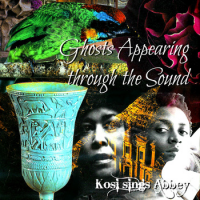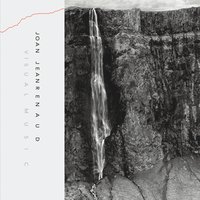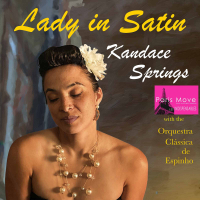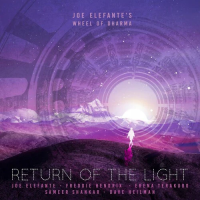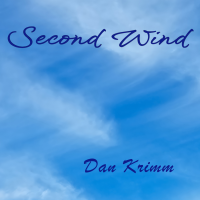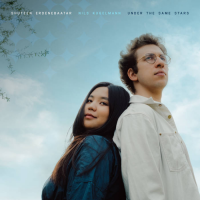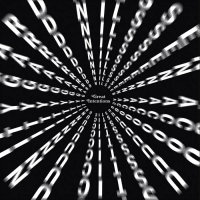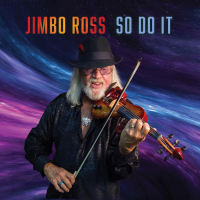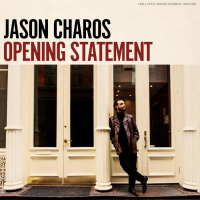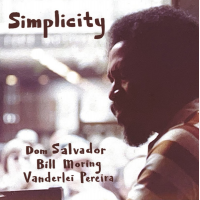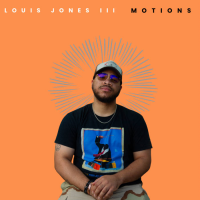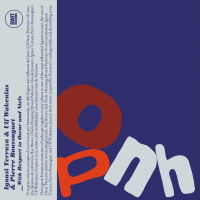Home » Jazz Articles » Album Review » Kosi: Ghosts Appearing Through The Sound
Kosi: Ghosts Appearing Through The Sound
Kosi implies as much when I ask her about the timing of the project: "Insofar as one can be defined by one's influences, this album was my way of introducing myself. Abbey Lincoln often said in interviews that she sang in the style of Billie Holiday, Dinah Washington, Sarah Vaughan, etc. This album was my way of continuing that that tradition." The recording process, Kosi goes on to tell me, was a difficult one, fraught with financial and health-related challenges: "On both of the recording dates, I had pretty bad hay fever allergies and was barely able to stop sneezing long enough to sing. Many mistakes went unchecked, and I spent a considerable amount of time forcing myself to listen to the album over and over until the mistakes didn't bother me anymore." But what Kosi humbly calls "mistakes" come across as expressions of honesty. It's precisely this off-centeredness that makes her art so compelling. Like Nina Simone, she lets her emotions shape each note as if it were a form of speech.
For this tribute, Kosi welcomes tenorist Brendon Biagi, pianist John Lander, guitarist Aron Marchak, bassist Christopher Hall, and drummer Isaiah Pierce, all of whom understand the environmental requirements of their bandleader's voice. "Learning How to Listen," an absolute Lincoln original, is more than a title, as Kosi finds it to be "an accurate description of the research process I had to do to put together this project." And in the power of her delivery one can almost see Lincoln nodding with pride in the greenroom of her soul. This song not only epitomizes Lincoln's songcraft, but also highlights the present interpreter's feel for movement. "Music is a lover with shining golden wings," Kosi sings, accompanied only by Marchak on guitar, seeming to describe every muscular contraction of the melody. This is the album's mission statement: to help those who love fly. John Coltrane's "Africa," the lyrics of which were inspired by Lincoln's trip to that same continent, is another natural fit for Kosi and puts the band in full form.
It's duly important to have a support network in such a context, and none of the musicians ever gets in the way of her delivery. The level of commitment and stamina required to perform these songs is nothing to balk at, as I've witnessed firsthand when seeing Kosi perform them live, and she handles each with a sense of total self. In this respect, "Down Here Below" is a key song for Kosi, who sings it as if she wrote it. Its tragic lyrics, which depict the sky as mirror of a world that has lost its way, are a caution to be heeded. "Wholly Earth," too, matches the global reach of Lincoln's awareness, and shows in Kosi an artist who keeps her feet grounded no matter how high she goes. It is from this song that Kosi culled the album's title, a symbolic gesture toward Holiday, Simone (who's "Hey Lordy Mama" gets a treatment), and Thelonious Monk (likewise, "Blue Monk"), and further toward ancestors and the African gods.
"Caged Bird" is unique for boasting the harmonies of guest vocalist Noël Simoné Wippler: a compact talisman of poetry that crystalizes the album's multifaceted lesson, which Kosi characterizes as "self-actualization and finding one's place in human history and in the metaphysical world." Along with "Driva Man," a vivid critique of slavery written by Oscar Brown and Lincoln's onetime husband Max Roach, it is among the deepest scars the album has to offer, while "Prelude: A Wedding Song" (with music by Heitor Villa-Lobos and lyrics by Lincoln) brings in guest Domagoj Miskovic on acoustic guitar for a distinctly Brazilian flavor that contrasts beautifully with the surroundings.
It's no coincidence that, in the CD insert, Kosi quotes the following from Lincoln: "People came before us, leave their memories behind...actions done and actions written, acts impressed upon our mind." Kosi has done this and more, ensuring that the impressions of Lincoln's acts remain indelible.
Track Listing
Learning How to Listen; Africa; Driva Man; Down Here Below; Caged Bird; Blue Monk; Wholly Earth; Hey Lordy Mama; Down Here Below (acoustic); Prelude: A Wedding Song.
Personnel
Kosi
vocalsKosi: vocals; Noel Simone Wippler: vocals; Brendon Biagi: tenor saxophone (2/7/8); John Lander: piano; Aron Marchak: guitar (1,5,8,9); Domagoj Miskovic: guitar (10); Christopher Hall: bass; Isaiah Pierce: drums (2/4/7/8).
Album information
Title: Ghosts Appearing Through The Sound | Year Released: 2015 | Record Label: Self Produced
Tags
PREVIOUS / NEXT
Support All About Jazz
 All About Jazz has been a pillar of jazz since 1995, championing it as an art form and, more importantly, supporting the musicians who make it. Our enduring commitment has made "AAJ" one of the most culturally important websites of its kind, read by hundreds of thousands of fans, musicians and industry figures every month.
All About Jazz has been a pillar of jazz since 1995, championing it as an art form and, more importantly, supporting the musicians who make it. Our enduring commitment has made "AAJ" one of the most culturally important websites of its kind, read by hundreds of thousands of fans, musicians and industry figures every month.


